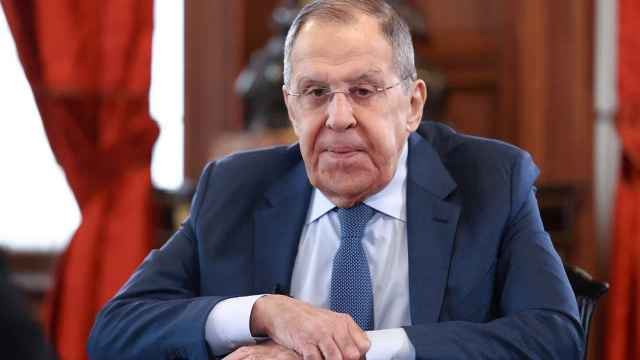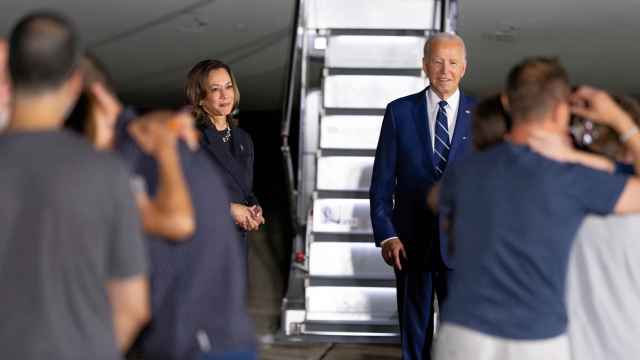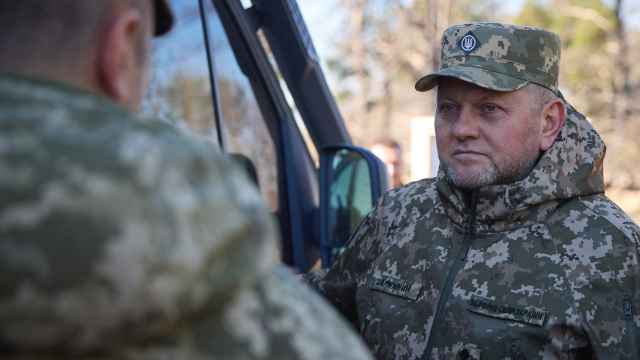Top diplomats from the United States and Europe skipped a new round of Ukraine peace talks in London on Wednesday, the British Foreign Office told news outlets, with the latest discussions on a ceasefire proposal now taking place among senior officials.
Sky News reported earlier that Germany and France chose not to send their foreign ministers, while U.S. Secretary of State Marco Rubio also declined to attend, according to The New York Times. U.S. presidential envoy Steve Witkoff, who is expected to travel to Moscow this week, also skipped the London meeting.
Instead, the talks are being attended by U.S. special envoy for Ukraine Keith Kellogg and Emmanuel Bonne, diplomatic adviser to French President Emmanuel Macron. Ukraine is represented by President Volodymyr Zelensky’s chief of staff Andriy Yermak, along with Foreign Minister Andriy Sybiga and Defense Minister Rustem Umerov.
“The Ukraine Peace Talks meeting with foreign ministers today is being postponed. Official-level talks will continue but these are closed to media,” AFP and The Guardian quoted the U.K. Foreign Office as saying in a statement.
Yermak wrote Wednesday morning that he arrived in London for the discussions, saying Ukraine “remains committed to working for peace” and that, during his visit, he “would discuss ways to achieve a full and unconditional ceasefire with Russia.”
NYT described the scaled-down U.S. presence as a setback for European leaders as they try to play a greater role in the peace process. Rubio had met with the French and British foreign ministers and a senior German official in Paris last Thursday, where he presented a U.S. proposal to end the war.
Following that meeting, Rubio warned that Washington could abandon ceasefire negotiations “within days” if neither Kyiv nor Moscow demonstrated a willingness to move quickly on a resolution to the conflict.
A U.S. official involved in the talks told Axios that both Rubio and Witkoff backed out of the London meeting after Ukraine signaled it wanted to focus on a 30-day ceasefire proposal rather than a broader U.S. framework.
That framework, according to Axios, includes U.S. recognition of Russia’s annexation of Crimea, de facto acknowledgment of Moscow’s control over four other partially occupied Ukrainian regions, sanctions relief and the promise of future economic cooperation. The outlet noted that security guarantees for Ukraine remain vague.
Axios described the one-page document as U.S. President Donald Trump’s “final offer,” with Ukraine’s response expected by Wednesday. If Kyiv rejects the deal, the U.S. administration may withdraw from mediation efforts.
Zelensky on Tuesday dismissed any recognition of Crimea as Russian territory. Meanwhile, Russian President Vladimir Putin reportedly offered Witkoff this month to freeze the war along current front lines as part of potential U.S.-led negotiations.
A Message from The Moscow Times:
Dear readers,
We are facing unprecedented challenges. Russia's Prosecutor General's Office has designated The Moscow Times as an "undesirable" organization, criminalizing our work and putting our staff at risk of prosecution. This follows our earlier unjust labeling as a "foreign agent."
These actions are direct attempts to silence independent journalism in Russia. The authorities claim our work "discredits the decisions of the Russian leadership." We see things differently: we strive to provide accurate, unbiased reporting on Russia.
We, the journalists of The Moscow Times, refuse to be silenced. But to continue our work, we need your help.
Your support, no matter how small, makes a world of difference. If you can, please support us monthly starting from just $2. It's quick to set up, and every contribution makes a significant impact.
By supporting The Moscow Times, you're defending open, independent journalism in the face of repression. Thank you for standing with us.
Remind me later.






